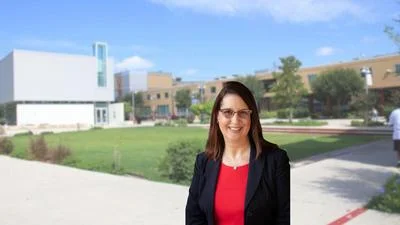Doug O’Connell, Special Forces Colonel Retired, is the defense attorney for Sgt. Daniel Perry who was convicted by a jury in Travis County for the murder of Garrett Foster during the BLM riots of 2020. Sgt Perry’s conviction was recently pardoned by Governor Greg Abbott.
Here are the highlights from our interview.
Lone Star Standard: What happened during the grand jury process with D.A. Garza and Detective Fuggitt?
O’Connell: During the grand jury proceedings, D.A. Jose Garza ordered one of the witnesses, the lead detective, Detective David Fuggitt, to not discuss, present, or mention any of the exculpatory evidence. While it is very much true that the prosecutor doesn’t have a legal obligation to present exculpatory evidence to a grand jury, I would say they have an ethical obligation. But, they don’t have a legal obligation. But, what Mr. Garza did was different in that he prohibited David Fuggitt from talking about exculpatory evidence. While I wasn’t there, my understanding is he basically ordered Fuggitt to not bring up or mention the other evidence. And in doing so, he was tampering with Fuggitt as a grand jury witness. Garza didn’t have to call Fuggitt as a witness. Yet, they made a decision to call him as a witness.
Lone Star Standard: LWas there evidence that the parole board was able to see that the jury did not see?
O’Connell: The parole board was able to see the other videos, and they were able to see the documents related to the legality of whether or not Garrett Foster was a prohibited person, that the jury did not see. They were able to see everything, and they were interested in seeing anything and everything and understanding all the complexities of this case. Unless you sat through every minute of the trial, you can’t really understand everything that happened in this case. There’s so much disinformation out there. For example, in your opening, you describe the BLM riots of 2020. I knew exactly what you were talking about. However, there’s no evidence that Garrett Foster was a BLM protestor and here’s what I mean. During the trial, I cross-examined Miss Whintey Mitchell. That was Garrett Foster’s girlfriend. I asked her, and not these exact words, but I asked her, what were you all doing out there? What were you protesting? And she said, it was a march in solidarity with Portland. And, I asked, well, okay, what does that mean? And then, we never got an answer that made any sense. Was everybody out there protesting for BLM? No. There was probably guys out there trying to meet girls. It was a large group and everybody had their own agenda.
Lone Star Standard: How do you respond to people who say this pardon is political?
O’Connell: From the beginning, and that’s one of the other things that cracks me up, all the talking heads and the commentators and the commissars who want to tell us what to think, they gasp and say this pardon was political. Well, of course it was political. Of course. Every decision a governor makes is political. Pardons, vetoes, not vetoing some bill. Appointments. Those are all political decisions. Every pardon, whether it’s a state pardon or a federal pardon, is political. So that’s absolutely true. But what’s also true is the decision by the D.A. to tamper with the grand jury witness. That was also a political decision. In order to get an indictment, the decision to not insist on a retrial once the jury misconduct came to light, that was a political decision too. Everything about this case has been political. That’s the nature of these high profile cases.
This interview transcript has been edited for length and clarity.
Listen to the full discussion here: https://texas-talks.simplecast.com/episodes/ep-22-doug-oconnellQ&A








